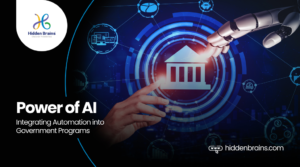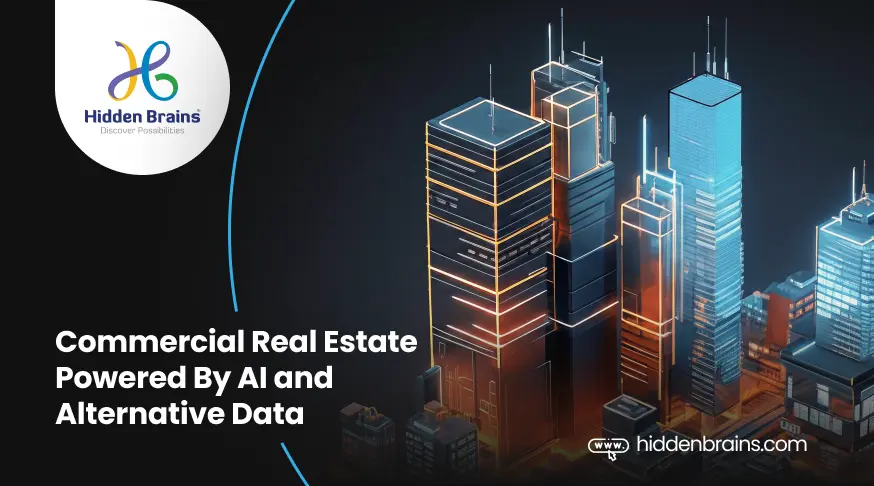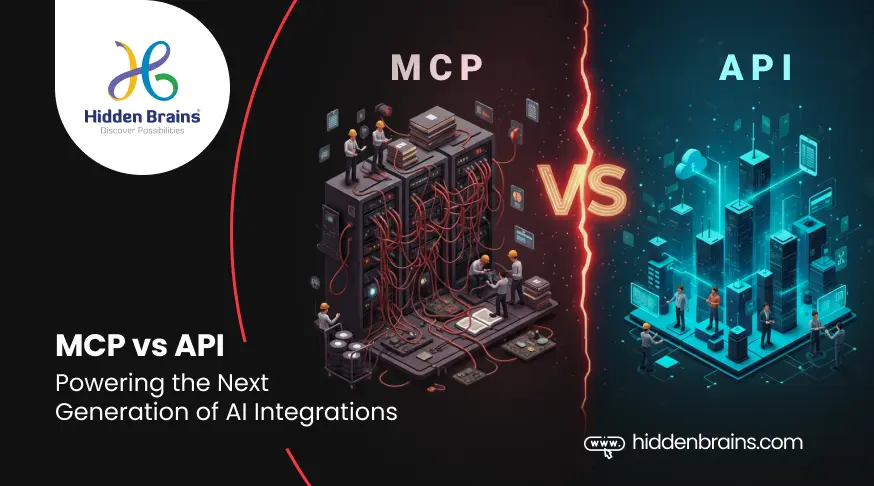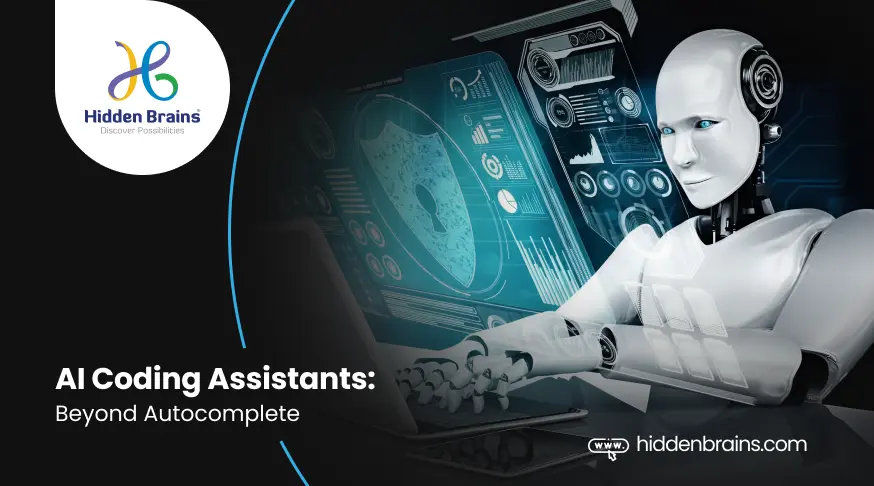Summary
The article explores how governments globally are increasingly leveraging artificial intelligence (AI) to transform public services, boost economic growth, and strengthen decision‑making. It highlights major initiatives such as national AI strategies, talent development, and cross‑agency collaboration in countries like the US. Key use‑cases include healthcare analytics, weather forecasting, traffic management, and education personalisation. The piece also addresses hurdles: cybersecurity risks, inadequate talent, outdated infrastructure, poor data qualit,y and regulatory gaps. Ultimately, it argues that while the potential of AI is immense, success requires ethical frameworks, clean data, modern infrastructure and stakeholder collaboration.
From the AI cold war that threatens us all to a more realistic approach to embracing artificial intelligence, we have come a long way. AI continues to boom as a technological trend, as well as rewarding customer goals. The strategic importance and power of AI are proliferating and are still waiting to mature and achieve their peak.
However, the Power of AI has had a significant impact on individuals, businesses, and governments. Numerous sectors, industries, and segments have leveraged the expertise and reshaped their core operations and strategic outputs. Globally, governments are vouching for AI for their business operation, revolutionary service delivery, enhancing decision-making, and even fostering community empowerment.
The Power of AI is expected to be unfathomably more powerful than humans in many ways. Humans have limited potential and are prone to errors. However, the accuracy of AI is efficient and far better in analyzing, interpreting data, and driving data-driven decisions. However, it cannot be construed in the same way humans do.
Addressing the industry challenges and demands of the industry, governments are implementing national AI strategies, establishing robust frameworks, and Creating AI adoption plans. Witnessing the significant transformation and value-driven results, governments are globally vouching to gear up and embrace Artificial Intelligence.
By focusing on strategic planning, talent development, and cross-agency collaboration, governments aim to harness AI’s potential to improve every sector and address national challenges while safeguarding citizen interests and values.
Let’s get rolling and understand how the integration of AI catalyzes the global economy and industries.

Looking for scale in this changing AI Era?
Check our Artificial Intelligence Services today.How is the Government Harnessing the Power of AI Technology?
The government has already promoted various initiatives, laws, and investments to harness the power of AI technology. As per the survey by Gartner, 26% have implemented chatbots and conversational agents. This statistics reflects that the government is complying with the trend toward AI adoption in public service, too.
A government agency, the National Science Foundation, is an active contributor to AI research and development. The NSF supports the AI Research Institute and fosters ethical and trustworthy AI systems and technology. From research and education to workforce development, they are monitoring nuance to harness the power of AI.
The adoption of AI is not limited to federal-level bodies and nations; it has expanded its horizons to state, local, and educational government organizations. Institutes are using AI-based systems to boost student learning outcomes and leveraging AI technology for urban traffic management. AI inclusivity is versatile and opens new alleys of potential to enhance the overall ecosystem. Governments and organizations worldwide are now exploring how to scale AI in your organization effectively to ensure sustainable innovation and long-term impact.
Video Captions: Artificial Intelligence in Government Initiatives
From automating tedious tasks to enhancing work, AI’s performance holds a promising future with numerous opportunities to explore. The video above from Deloitte supports this view.
Universal Use of AI Applications and Initiatives to Upscale Its Growth
As the power of AI is discovered and technology becomes more powerful, myriad sectors are integrating AI into their operational aspects and bringing transformational changes. For these reasons, the U.S. government has made AI innovation a top priority.
In the U.S., Congress passed legislation to support AI development and adoption, such as the 2020 Nations AI Initiative Act and the 2020 AI Government Act. National Security Commission In 2021, vouched to double nondefense funding for AI research and development annually to reach $32 billion per year by 2026.
Some Initiatives Have Been Set Forth by the Government to Promote AI:
- President Biden put his foot forward and signed executive orders to foster AI development and governance across federal agencies. While the order equally focuses on ensuring safety, security, and trustworthiness.
- The government established the National Artificial Intelligence Initiative through the NAII Act of 2022, which coordinates AI research, development, and demonstration activities that focus on coordinating research development and demonstration across civilian agencies.
- The federal government is more focused on hiring the right talent to build and govern AI systems.
- The government is providing resources to support AI research and education.
- A committee has been established to advise and regulate the White House on AI-related issues.
- The government is making strategies to promote AI principles Internationally. This would focus on inclusive growth, human-centered values, transparency, safety, security, and accountability.
- AI Center of Excellence is established within the General Services Administration to uplift the AI capabilities.

Wondering how to harness the full power of AI in your business?
Optimize operations seamlessly with IoT solutions integrating AI.Key Ways AI Has Geared Towards Advancement:
Machine learning, deep learning, computer vision, speech recognition, natural language processing, and robotics, collectively, when put to work, these technologies have outperformed and added numerous tangible benefits. As per Booz Allen Hamilton 2023, two-thirds of technology leaders believe that AI will be mature and impact business executives through 2027.
Before we dive in further and understand, have a sneak peek at Gartner’s report exhibiting Digital Transformation and AI adoption across Government.

AI in government translates to scale and speed and makes the arduous process smooth and streamlined. Harnessing the Power of AI, the federal government is making amendments to the traditional approach and is ready to serve the public. From healthcare, transportation, and benefits delivery, the federal government is establishing strong guardrails to ensure that ethical and trustworthy powers are unleashed and people are safe.
AI in Healthcare
AI’s ability to analyze data and drive the decision is impressive. The healthcare process involves recording, storing, and providing top-notch customer service to check counterfeit drugs and upgrade to disease prevention. AI, combined with human intervention in healthcare, has been used in medical imaging analysis, personalized treatment plans, drug discovery, remote patient monitoring, and more.
From early detection of counterfeit drugs to false mammography, AI has proven to have more accurate and realistic results.

How Healthcare Industry Revolutionized With AI in Medicine?Read Now ↗
AI for Weather Predictions
Unlike the traditional approach of relying solely on physical equations, AI models identify patterns, correlate data, and forecast the complex tasks of predicting weather. With a combination of Deep learning and machine learning, it analyzes vast datasets efficiently and accurately handles the predictions.
Leveraging the Power of AI, governments promote better well-being, optimize resource management, mitigate climate risk, protect natural environments, and overall aid in economic resilience. From informed decisions to sustainable development, A.I’s versatility could be maximized and reaped benefits.

AI for Real Estate
AI combined with machine learning, deep learning, robotics, and algorithms can churn out vast datasets and automate processes like property valuation, personalized recommendations, lead generation, and more. The technology transforms the way businesses approach the process of buying, selling, and investing by providing customized recommendations and lead generations.
A report by McKinsey underlines that Generative AI in Real Estate is poised to significantly uplift the potential of the real estate industry and generate $110 to $180 billion or more in value.

The Role of Artificial Intelligence in Real EstateRead Now ↗Real estate companies have experienced growth, value, efficiency, new revenue streams and stronger customer experience. Ready to rebuild your real estate business? From scratch to castle, our Real Estate Software Solution experts are there for you.
AI In Traffic Management
Be it walkways or commuting, traffic management faces multiple complexities, be it congestion, safety risks, aging infrastructure, technological integration hurdles, population growth, and more.
To overcome these challenges and promote a safe place, the government has leveraged the power of AI deep learning techniques, machine learning, big data analytics, geospatial analysis, and IoT, which have collectively added approaches to improving traffic management and optimizing infrastructure.
With real-time monitoring, predicting traffic flows, and identifying safety hazards, AI-driven solutions have proven to improve quality of life and smartly manage traffic.

AI In Education
As AI is taking center stage and dominating different industries, the education industry is behind in staying strong. Traditional approaches to ‘one-size-fits-all’ syllabi and educational formats are bland and monotone and do not cater to diverse needs, preferences, and learners. With a combination of Generative AI, Machine Learning, Predictive Analytics, eDM, Chatbots, and Deep learning, there are huge opportunities and possibilities for learners and educators.
Artificial Intelligence revolutionizes quality, accessibility, and personalization, delivering immersive and blended learning through interactive tools and gamification. 54% are more engaged and participate in courses that are powered by AI tools as part of their learning regimen.
54% of students are more engaged in courses when AI tools are part of the learning experience.

Artificial Intelligence & the Wave of Transformation in The Education IndustryRead Now ↗Challenges Lurking in Leveraging the Full Potential of AI
Data is ubiquitous, and it’s constantly moving from person to person. AI-fueled organizations can advocate that this data can bring transformational value and profit, enhancing the workforce and winning customer experience. However, these ticks are enough to persuade organizations that are struggling to capture and gain the full business advantages with the Power of AI.
However, it’s challenging for many organizations to adapt and strive in the competitive arena. These challenges include integrating data from diverse sources, preparing and cleaning data, providing self-service access, data governance, and lack of the right talent.

Here are the challenges associated with implementing Artificial Intelligence in Government Programs:
1. Cybersecurity In Government
Government systems are loaded with myriad sensitive and confidential data. Government agencies involved in myriad responsibilities and handling vast volumes of confidential data are struck with security challenges. As we navigate the digital age, cyber threats require a multifaceted and dynamic approach that fortifies business and government systems, reducing the chances of risks.
2. Workforce Preparation
The integral yet foremost challenge in integrating and unleashing the Power of AI is the lack of expertise and potential talent. A well-trained and knowledgeable talent should have a high level of understanding and comply ethically. This dilemma frequently influences the adoption of AI in the public sector landscape.

Let’s Get Started Today!
3. Infrastructure
Replacing outdated infrastructure with traditional systems stands out as challenging for most organizations. Maintaining security compliance, integrating AI and data analytics, and complexities of growing data volumes are some of the major hindrances to integration.
Governments should address integrating modernized systems, prioritize cybersecurity measures, and leverage cloud computing for scalability. Collaborating with technology partners and training programs like artificial intelligence course or cloud computing courses and finding the right talent would help harness the Power of AI for better decisions and services.
4. Data Hygiene
AI relies on data. Clean data. Government systems are outdated with traditional pen paper unstructured data. Acquiring a sufficient volume of high-quality data or revamping is a substantial obstacle. The data at hand may be limited or lack diversity.
5. Regulations
Every rose has its thorn. With more powers comes the potential for breaches, too. The landscape requires security, privacy, and ethical risks related to the use of AI. Governments are establishing systematic approaches that proactively safeguard the data and penalize organizations that fail to comply.
Governments are creating a framework for risk management and compliance that will enable them to innovate and deploy at a safe pace.
Key Takeaways and Lesson Learnt
The evolving and dynamic landscape demands more proactive and constructive AI approaches that help win the competitive landscape. Learning from the past and modifying for the future is key to surviving. Here are some key takeaways reflected upon before diving and harnessing the power of AI.
Integration – From custom solutions to enterprise, there is a huge proliferation of AI, which opens up risks and possibilities. To stay vigilant and driven to stay future-proof, integrate ethical practices and latest-technologies that brings more.
National AI Strategies – Governments are implementing AI strategies, frameworks and adoption plans that harness AI’s potential.
Diverse Applications – The power of AI is limitless and has expanded each and every horizon. The better you dive in and train the models, the more you will be able to reap it.
AI Challenges – To be data-driven, clean data and advanced solutions are required. Lack of expertise, leveraging techniques and associated partners are significant challenges.
Become a Smarter Consumer – AI comes with drawbacks and potential threats, too. While it’s essential to harness the Power of AI, it’s equally important to stay aligned and comply with the organization’s ethical principles.
Collaborate – Ensure your partners or collaborators help you to integrate solutions that comply with your needs and goals. Verify that their solutions can bring value to your business. Our AI/ML Partners can meet your business objectives and enhance operations efficiency.
Hidden Brains: Your Partner To Harness The Power of AI
Be It traditional models or fostering new alleys, AI has the power to drive economic growth, build efficiency and gain supremacy. Hidden Brains help you in your goals to gear up and embrace Artificial Intelligence and unlock its potential.
Hidden Brains is a leading AI app development company and has been working with government agencies and enterprises to meet their digital transformation requirements.
We assist in optimizing administrative procedures, enhancing strategic choices, and upgrading public services by leveraging intelligent automation and data-driven forecasting techniques. If you are ready to upgrade your existing infrastructure and gear up with the Power of AI, our experts will help you meet your end goals.
FAQs
How can AI enhance decision-making processes within government organizations?
AI has prowess to record vast amounts of data quickly, offering insights which would take humans much longer to reveal. Since government procedures rely majorly on with data, the Power of AI can work wonders in this.
What are the ethical considerations when implementing AI in governance?
The major ethical considerations when implementing AI in governance-
Security: Protecting AI systems from misuse and malicious attacks
Privacy: Protecting personal data and privacy of an individual
Fairness and Bias: Ensuring AI systems are free from biases and offer fair treatments to all individuals
How can AI-driven analytics improve policy formulation and implementation?
AI-driven analytics are more than just for decisions. They can improve policy formulation and implementation by offering data-driven insights, predictive modeling, and real-time monitoring.
What are the risks associated with AI bias in governmental decision-making?
The risks associated with AI bias in governmental decision-making include discrimination, inequity, erosion of trust as well as legal issues.
How AI can help governments tackle issues like fraud detection and cybersecurity?
Government data is prone to hacks and outlawed uses. AI can tackle issues like fraud detection, threat detection, network security, phishing detection, threat management and cybersecurity, and more. By using advanced algorithms to detect anomalies, patterns, and possible threats in the early stages, AI can safeguard data and improve operations.
Conclusion
Hidden Brains, a leading AI app development company, empowers businesses to drive economic growth, boost efficiency, and achieve supremacy. With experience working alongside government agencies and enterprises, we optimize administrative processes, enhance strategic decisions, and improve public services through intelligent automation and data-driven forecasting. Ready to upgrade your infrastructure and harness the power of AI? Our experts are here to help you unlock its potential and achieve your goals.






























































































![Sales & Distribution [Oil & Gas] Sales & Distribution [Oil & Gas]](https://www.hiddenbrains.com/blog/wp-content/themes/blankslate/assets/images/sales_and_distribution-icon.74d08193.svg)

![Fluid Terminal Management [Oil & Gas] Fluid Terminal Management [Oil & Gas]](https://www.hiddenbrains.com/blog/wp-content/themes/blankslate/assets/images/fluid_terminal_management-icon.4b3a27a4.svg)































![Sales & Distribution [Oil & Gas] Sales & Distribution [Oil & Gas]](https://www.hiddenbrains.com/blog/wp-content/themes/blankslate/assets/images/sales_and_distribution-icon.74d08193.svg?1.0.0)
![Fluid Terminal Management [Oil & Gas] Fluid Terminal Management [Oil & Gas]](https://www.hiddenbrains.com/blog/wp-content/themes/blankslate/assets/images/fluid_terminal_management-icon.4b3a27a4.svg?1.0.0)
























































































































































































